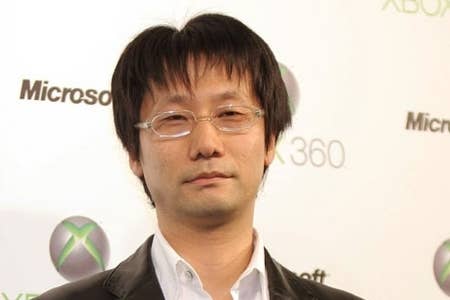Hideo Kojima: 25 Years of Metal Gear Solid
The full transcript of BAFTA's lecture with the creator of the Metal Gear franchise
On Friday night Hideo Kojima, Metal Gear Solid creator and development titan, spoke to BAFTA about the 25th anniversary of the Metal Gear series. In the interview below, hosted by journalist Johnny Minkley, the auteur gives his insights to the past, present and future of the series, and why the auteur might be an endangered species.
"25 years ago I never really imagined that game hardware would evolve this far so quickly"
Quite honestly it's surprising to me, 25 years ago I never really imagined that game hardware would evolve this far so quickly. But, if the question is whether or not I'm happy with where it is, the answer is no. For example, if you're going to create a piece of art the first image is in your head. And that original image popped into my head 25 years ago. For 25 years I've been trying to recreate that image in the form of a game.
The amount of tools I have available to me has changed, it's increased. I have more colours available to me in my palette, I have more tools available to me. But I still haven't been able to achieve that original image that I had in my head. And until I'm able to achieve that I'll keep on creating games.
I think at some point if we can attain a point where games are truly immersive and you can feels things like temperature or smells then I think at that point it will come very close to what I originally had in mind and at that point maybe I'll be satisfied.
Well I am a huge movie fan, and I've said in the past that 75% of my existence is movies. So being able to come here and speak here at BAFTA is really a great honour for me. But of course I've been watching lots of movies ever since I was young, movies and novels have really shaped my existence and over the past 25 years I've applied that to Metal Gear Solid. It's really a culmination of all these various movies and influences that have allowed me to create Metal Gear Solid, so it's not one particular work that has really influenced me.
But if I had to name one particular movie it would possibly be Stanley Kubrick's 2001: A Space Odyssey, it's not so much that I love the story or anything particular about it. It's more just the feeling that I got from it. It was made at a point in time when we hadn't been to the moon yet, and yet it really made people excited about going into space and it gave people dreams and got people thinking. I think that really inspired me, and that's what I try and accomplish with my games.
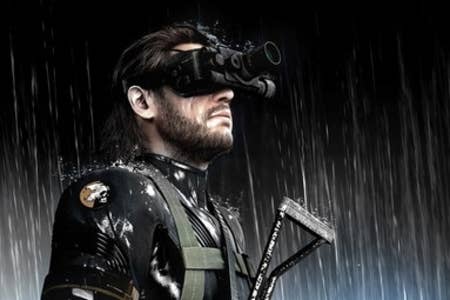
First of all when it comes to game design and story I think of both of them by myself and I do it simultaneously, in parallel. And I think in the games industry today it's more common for the story to be written by one person and the game design to be done by another person, but in my case, since I am thinking of both of them I am able to have one complement the other as I think of both of them simultaneously.
And as far as how the open world sort of system will affect storytelling, I think it will affect the way that I am able to tell stories. Of course the user will have a lot more freedom now, but think the type of stories I tell will still be fairly consistent. So it won't do just to tell the player 'go here,' 'do this,' and have a very linear form of storytelling. I think now that the players have a lot more freedom with an open world environment it's really up to the player to create their own story as they play through the game, and I think that's something new and fresh that'll come out of the next generation of games.
"Originally I entered the game industry because I wasn't able to enter the film industry"
If I go back to my roots, originally I entered the game industry because I wasn't able to enter the film industry. I love film, but once I started creating games I realised that games are really fascinating, it's a lot of fun to create games. And as I said earlier, I still haven't been able to achieve that image of the perfect game that I had in my mind. So I still want to continue creating that interactive form of storytelling. And needless to say I think most people in the audience know, as far as movies based on games up until this point there haven't been any success stories. I think one of the reasons for that is that games are an interactive medium, so they create a scenario, a setting for the player to interact with but there's not really a compelling story there for a lot of games.
And then of course what happens is Hollywood sees the games are popular, they try to pick [them] up and they create a story and try to basically force a story onto that game. And in the end it doesn't work because you end up with something that's neither the game nor a good movie so fans of the original game won't be satisfied and movie lovers won't really be satisfied with it either, so it doesn't really hit any particular target. So that's the problem that I'm trying to remedy with the upcoming Metal Gear Solid movie, and I'm sure most of you know who's producing it [Avi Arad] and I hope you have confidence in that movie because I feel it will turn out well.
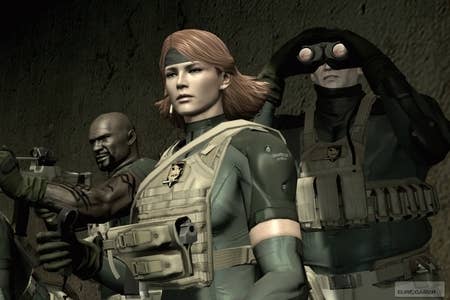
First of all I think as hardware evolves games will become more and more realistic, and the user will be given a lot more freedom. Also the way you interact with it will become more natural, there'll be other ways to interact with the game world. So I think games will evolve to a point where you won't be able to force rules down the players' throats, you'll have to think of other ways to have them interact with the game.
I think it's very important that you don't just mimic the storytelling style of movies. So for example, don't make the player just walk from Point A to Point B and force them down that path. You really have to give them options and find a way to tell the story and express a story within that wide range of freedom. I think games up until this point, and most of the games that are out today, are basically on rails. If you compare it to something out there it's like a ride, you're on a rail and maybe a monster pops out every once in a while, or flames burst out from the side of the track, but you're not really in control of it.
But from this point on I think it really will be the users controlling all the action. You're walking wherever you want, you can stop, you can go backwards, you can turn right, you can have total freedom. And it's really exploring those options that will make interesting games from this point on.
First of all the original vision comes from me, from within myself. So the gameplay and the controls, those are all up to the game designer and I come up with those. Within myself I have a lot of imaginary personalities, I guess, within my head: people that I have met in the past, family members, friends, characters in movies. So I kind of bounce my ideas around in my head within the context of those various personalities and try and ask myself if I'm on the right path. But then of course that's not enough, so what I do next is create a teaser or a trailer, and I put that out there at a game show or on the internet, and I wait to see what the response is like. And based on feedback from that I make minor adjustments and tweaks at that point.
"I think the auteur concept in games is a dying breed and I'm afraid that probably my generation will be the last that can make that claim"
I think especially for things like the gameplay control, it's useful to put it in front of people and have them play it at game shows or through demos and get some detailed feedback. However I do not change the core gameplay concept, that's something that I need to remain true to my vision. If it comes to a point where all the users do not like the core concept then that's not something that I can adjust, that is something that I just have to throw away at that point because it's not a valid concept. I think the worst thing that can possibly happen is to really lose sight of your original vision.
If you put it out there you just get all kinds of feedback from users, but you lose sight of what you originally intended to do, the game ends up going down a completely different path. It never ends up well, and I definitely do not do that and I tell all my team members never to do that as well. It's something you have to be careful of when creating games.
I do think that that's a very valid point. In my generation it was impossible for one person to create something by themselves and get it out there, and publish it themselves. But nowadays with the internet everybody has the power to become a game creator, you can create something and put it up online and anybody can download it, so I think that's a very valid point and a valuable tool as well. But I do think that certain things can only be achieved with a AAA budget, if you want to make a really big game it involves risk. You need a huge budget and I think at that point, that's when things become very formulated and stale.
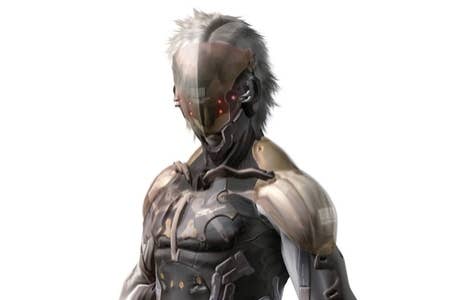
So that even applies to me, if I tell the company that I'm going to make another Metal Gear title they give me all the money I want, but if I say I want to make an original title they're not quite as cooperative. But I do think one thing that's on the rise is similar to what happens with some indie movies. Maybe you'll create the first chapter or the first 10 minutes of something and put that out there, get response and then raise funds from that and get sponsors. That's something that's on the rise and I think it's something to keep an eye on.
One thing that I personally would like to try is something similar to a tv series, where you create a pilot episode and you put that out there and see how the fans react to it. If it does well then you continue it along those lines and you create a full season. If it doesn't then maybe you have to go back and adjust things at that point. And of course it's very possible that if you put it out there and it's absolutely not popular at all then that may just be the end of it at that point.
First of all if you give somebody a mission, and say your mission is to go and rescue this person, already you create some drama there. However if you take that a step further and say give the person the power to decide how they get there, what time they arrive, what kind of path they use to sneak into the base then it creates even more drama and gives them more freedom. So it's not so much that I've been aiming to create an open world game so much as I just want to give players the freedom to do things in a way that feels natural to them.
Up until this point, if you had a hundred people and you made them play a game, they'd all basically arrive at the same time, take the same route, use the same equipment to get the job done. But what I want to do from this point on is give people the freedom, so if you have a hundred people and you give them this mission then they'll all come back with a hundred different stories.
They may arrive at a different time, use a different route to get into the base, use different weapons and equipment. So rather than having one great, dramatic story you have a hundred. That's really what I want to accomplish. So it's not necessarily that I'm aiming for open world, that's not the [be all and] end all, what I want to do is give people the freedom to create their own stories and create something that's very personal to them. That's what I want to accomplish.
First of all when it comes to female characters I myself am male, so in a way you can say the female characters I create are my ideal. It's kind of my fantasy, these are the type of female characters that I like, so that's what I make. And ever since I was young I've always been fascinated with very intelligent career women, scientists and people like this. Somebody who is very ambitious but is also able to express a lot of emotion. Those are the type of female characters that I put into my games.
But that said I think there was one female character - Rose - and she wasn't too popular. Do you guys not like her? Ironically she was the one female character that I tried to base on actual people that I knew. She was based on past girlfriends or female acquaintances that I've known, she was supposed to be the character who - even within this fantasy game where these men were going to war - she was like the real character who would come and talk to the player. And ironically nobody liked her.
So for example, while the player was out doing a mission she'd call over the Codec and maybe ask the player 'hey, do you know what day it is today?'. That's something that actually happened to me, of course I've gotten calls like that before, and that's why it was in there.
I do agree and I do think that's a common problem. Of course Metal Gear was based on the concept of hide & seek, and I wanted people to experience that tension that you experience when you're playing hide & seek. But that said, if it's something that the marketplace isn't ready for or the marketplace doesn't want then I think that also is a factor that has to be considered.
"Ever since I was young I've always been fascinated with very intelligent career women, scientists and people like this"
So, for example, if you look at a lot of the games out there they're a lot of first person shooters based on sci-fi space battles, or aliens, things like that, it's very common. I do think that it's because there is a marketplace for those type of games, people keep on buying them. But I think it is important to keep an eye on that marketplace, and aim to please them but do something new within those boundaries. That's something that I feel I have to struggle to accomplish as well.
It was just all round bad. I wasn't involved with the Nintendo version at all, and yet it sold millions here and in America. And of course I didn't really like what was going on, I'd never played the game because it kind of rubbed me the wrong way, but then one day I saw it in a bargain bin being practically given away for free so I bought it out of curiosity. The MSX version it started immediately while you were embarking on your stealth mission. But the Famicom version or the Nintendo version started a few steps ahead of that, before you embark on your mission.
And you're trying to make your way to the building that you have to infiltrate, and these Dobermans come out. And honestly, no matter what I could do, I could not get past that stupid Doberman without being spotted. I got frustrated with it and I never played it from that point on. I couldn't even get to the first stage without feeling frustrated, and that's just terrible. Although I didn't play the game all the way through to the end I have spoken to people who have, and I've heard that it's a Metal Gear game but there's actually no Metal Gear in the game. At the end there's a giant computer monitor, and when I heard that I just thought that's not right.
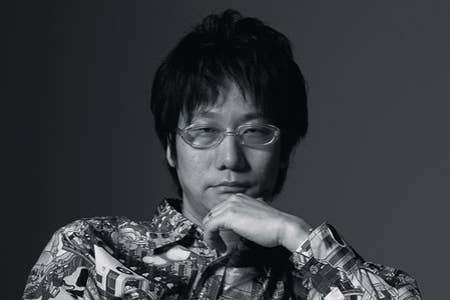
First of all I'd say that yes it has changed me quite a bit. I guess the way I create games hasn't really changed, but what I think about now is not just creating something for myself but creating something for the next generation and what I can pass on to the next generation. So I find myself thinking about what will happen after I'm gone from this world, what will I leave for the next generation and what can I do to have a positive influence on them? So rather than just creating a game where you just kill time or have fun with it, of course that's important, but I also want to do something that's useful to the next generation, that's useful to the people who play it and really think about what kind of influence it will have on them and their lives. After becoming a father that's become something that I think about a lot.
So of course back when I was single and had no kids I didn't really think that much about the future. My future planning was limited to about three days. But now that I am a father I think about these things, I think about what's going to happen down the line. It's really changed my perspective on things, and what I put into my games.
First of all Metal Gear Solid as a series does have a few main characters, one of them - Snake and of course Raiden is another main character. And if we're going to make a game based on Raiden we have to make something that takes advantage of his unique characteristics, and that turns out to be an action game. So even though the series up to this point has been stealth, if we were going to make Raiden the main character it just made more sense to have it be more of an action orientated title. So that's why we made that decision.
And if you recall, back in the days of Metal Gear Solid 2, when Raiden was the main character in a stealth game he wasn't all that popular. And originally the reason I did that was because if you're playing this legendary character like Solid Snake and you're a new player playing the game and you die it just doesn't make sense story wise. Why would this legendary, super powerful character die in the first few moments of the game? And so that's why I created Raiden, so Snake was kind of like the character that you look up to, he was the hero, but Raiden was the new guy and new players could play Raiden and it would make sense that they weren't the ultimate bad-ass.
It's an interesting thing, when the player is playing a character and they see Snake as a non-player character he looks even cooler for some reason. It's a psychological thing. And then I think because of that effect Snake looked even cooler because he was like this mentor character and I think from there people wanted to play Snake even more and he became even more popular as a result. What's interesting is that it flipped around when we brought out Metal Gear Solid 4. So you were controlling Snake again but then a really cool, bad-ass Raiden appeared and the player was this time looking at Raiden saying 'hey, that looks really cool, I want to control Raiden now,'. And so the concept behind Rising was, okay, let's give the player the chance to play this really cool, cybernetic Ninja Raiden. So that's how the concept for Rising was born.
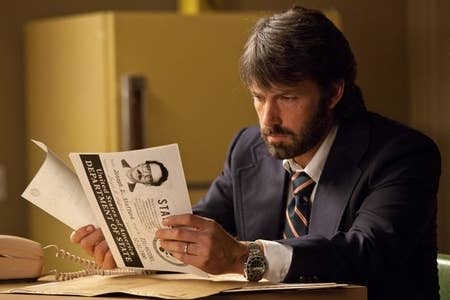
Thanks to BAFTA for allowing us to publish the interview transcript.
